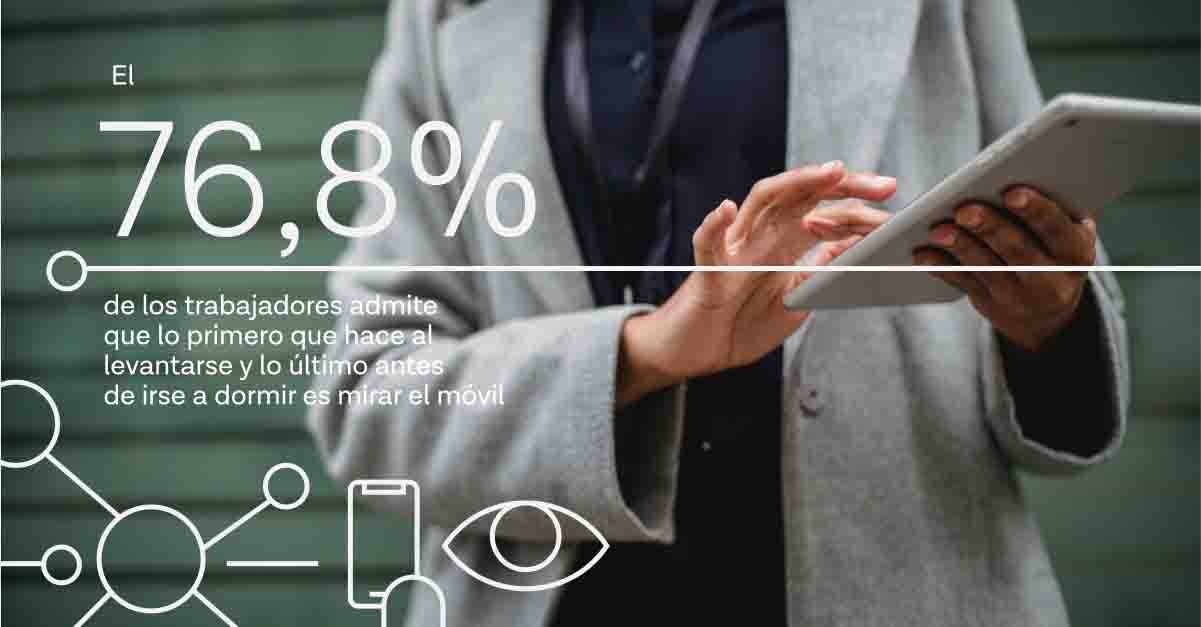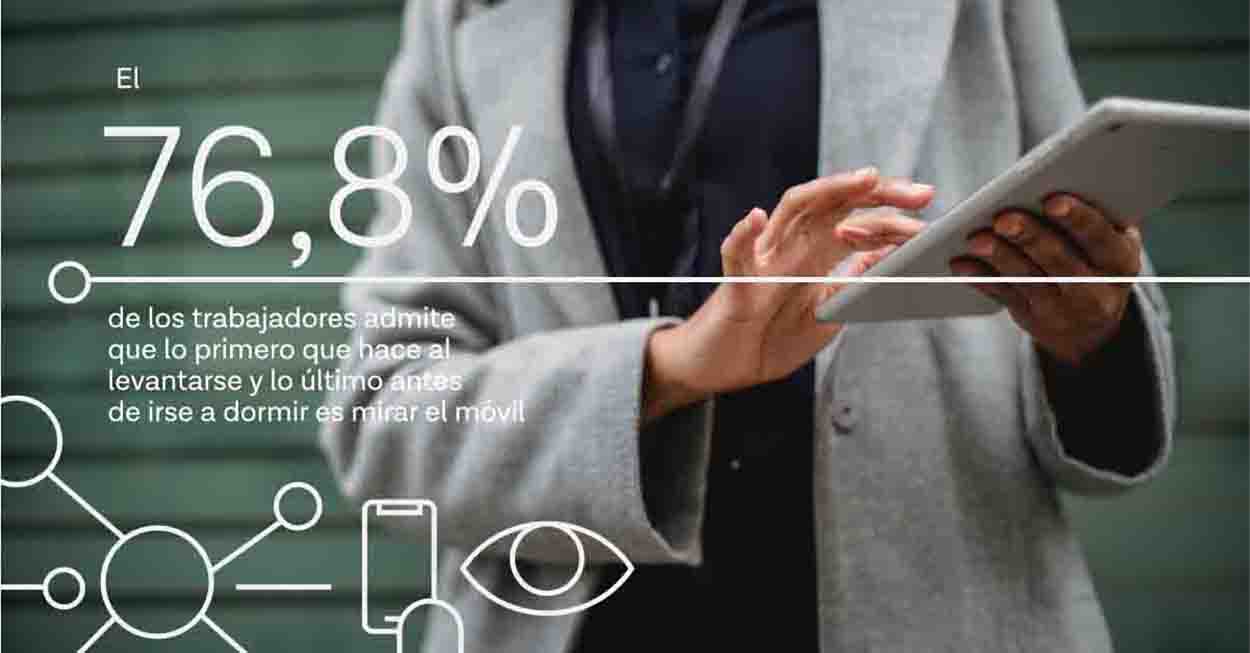The UPF Barcelona School of Management's Business Leadership Observatory conducts a research on digital disconnection between more than 90 companies from up to 40 different occupational sectors.

- The UPF Barcelona School of Management's Business Leadership Observatory carries out an investigation on the digital disconnection between more than 90 companies from up to 40 different occupation sectors.
- 1 in 2 workers considers that digital connectivity in the workplace shows a greater commitment and involvement with the company.
- Digital connectivity is a favorable element for a professional career, the majority of those surveyed agree.
Greater availability at work does not mean higher productivity. This is the majority opinion of the people surveyed expressed in the study Digital disconnection, an essential labor right for health by the Business Leadership Observatory of UPF Barcelona School of Management.
Among a parity sample of more than 600 people, more than half (52.5%) consider that digital connectivity in the workplace shows a higher level of commitment and involvement with the company. In this sense, digital connectivity is observed by most of the people surveyed as a favorable element in the professional career of individuals.
"The study reveals that the majority of working people, with a score of 4.19 out of 5, believe that digital availability should be agreed with the company"
The research, directed by Sílvia Cóppulo and carried out jointly with Erola Palau , analyzes the digital disconnection in 93 companies from up to 40 different occupation sectors, concluding that practically the all workers surveyed (94.6%) attend work messages outside of their working hours. In addition, 76.8% admit that the first thing they do when they get up and the last thing they do before going to sleep is to look at their phone.
The digital disconnection, agreed with the company
"The study reveals that the majority of working people, with a score of 4.19 out of 5, believe that digital availability should be agreed with the company", explains the director of the Observatory of Leadership in the Company, Sílvia Cóppulo. They also consider that digital disconnection must be included in the conditions that regulate labor agreements, as well as established in contracts.
"Digital disconnection must be regulated, especially when teleworking or having flexible hours"
In summary, the people surveyed want their digital disconnection "to be agreed with the company and even formally agreed," says Cóppulo. However, there are few companies in which it is so. "Digital disconnection must be regulated, especially when teleworking or having flexible hours," reflects the co-author of the research, Erola Palau.
Health implications
In this context, the repercussions for workers' health have also been noted. "People are digitally fatigued and feel stressed," says Cóppulo, according to the feelings of 54.3% of those surveyed, regarding fatigue, and 65.6%, regarding stress. Another piece of information that emerges from the research is that 42% of workers admit that they do not rest well (seven or eight hours a day).
While, from the labor point of view, 1 in 2 people affirm that digital connectivity shows greater commitment and involvement with the company, although it does not imply greater productivity, from the health perspective, 58.7% of those surveyed believe that digital connectivity is bad for their health and 46.7% say that it causes emotional disconnection.

